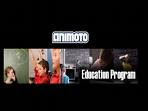I found these “Do Now” assignment suggestions in the
Ning in Education. The assignment asks students to watch a video. Beforehand, they reflect on a series of question, and after viewing the video, they contemplate a prompt the teacher provides. To see the original plan as presented by the teacher, Scott Habeeb, use this link:
http://education.ning.com/profiles/blogs/want-to-teach-your-students-1Scott concludes, “Lessons like these, embedded into a Do Now assignment, can be a fun way to start off class, a great way to connect with your students, and an opportunity to teach your students about life.”
For now, I am posted two of his suggestions as he describes them verbatim, and have embedded the accompanying videos.
1)
The Life Lesson: One person can completely change another person's life:
A.
The Do Now Assignment: Watch the following video and answer the following questions: If you could choose and had to choose, would you rather be remembered the way this father is remembered or would you rather be remembered for being rich, famous, and powerful? Why?
B.
The Object Lesson: The following video:
The Follow Up: Ask students to share their answers. Make sure they understand the power of sacrifice. There is great strength in loving and sacrificing. Amazing things can happen when one person sacrifices for another.
2)
The Life Lesson: It's better to build someone up than to tear someone down:
A.
The Do Now Assignment: Watch the following video and write a reflection on why you think this video makes people happy.
B.
The Object Lesson: The following video
C.
The Follow Up: Ask students to share their answers. The reason this makes people happy is because it is natural for us to enjoy watching the underdog do well and be happy. Unfortunately, many people tend to find it easier to tear down others or to bring people down to their level instead of helping to build others up. What would it be like in a high school if EVERYONE treated EVERYONE else the way that those students treated Jason?
Do you see the value of these kinds of "To Do Now" video lessons? Would you consider the same format, begining with "A To Do Now," followed by the video, and finishing with The Follow-up? Think of ways in which you can use this structure within your subject area or teaching grade level.
 Please take some time to read this New Yorker magazine article by best-selling author Malcolm Galdwell (e.g., Tipping Point and Blink): Twitter, Facebook, and Social Activism.
Please take some time to read this New Yorker magazine article by best-selling author Malcolm Galdwell (e.g., Tipping Point and Blink): Twitter, Facebook, and Social Activism. 



















 Try creating a few panes in a comic strip with the options available: characters, text boxes, think bubbles, objects, sizing, moving, and backgrounds. Remember to give your strip a title and to list yourself as its author. Use the Next feature when you are ready to print, or email your creation to a reader. It takes a little trial and error to get going, but it should not take you long to create your first comic. Have some fun and a few laugh! Let us know what you think.
Try creating a few panes in a comic strip with the options available: characters, text boxes, think bubbles, objects, sizing, moving, and backgrounds. Remember to give your strip a title and to list yourself as its author. Use the Next feature when you are ready to print, or email your creation to a reader. It takes a little trial and error to get going, but it should not take you long to create your first comic. Have some fun and a few laugh! Let us know what you think.






 In a reversal of the current trend to turn print books into e-books, I just got an "invite" to turn my blog into a printed book in softcover or hardcover for $14.95 and up. I can even elect to include a dedication, probably for additional fee. Wow, we now go both ways: from e-publishing back to printed books, not just from taking printed books and converting them to e-books. This was a shock. Have others heard of turning electronic texts into printed books! I will let you know more if I investigate the offer to convert my blog into a published book. However, the offer makes me wonder, if teachers sponsored blogs with their students, K-12, and then had the full blog published at the end of the year as a book, how would students feel seeing their collaborative work in a book? Any thoughts?
In a reversal of the current trend to turn print books into e-books, I just got an "invite" to turn my blog into a printed book in softcover or hardcover for $14.95 and up. I can even elect to include a dedication, probably for additional fee. Wow, we now go both ways: from e-publishing back to printed books, not just from taking printed books and converting them to e-books. This was a shock. Have others heard of turning electronic texts into printed books! I will let you know more if I investigate the offer to convert my blog into a published book. However, the offer makes me wonder, if teachers sponsored blogs with their students, K-12, and then had the full blog published at the end of the year as a book, how would students feel seeing their collaborative work in a book? Any thoughts?











